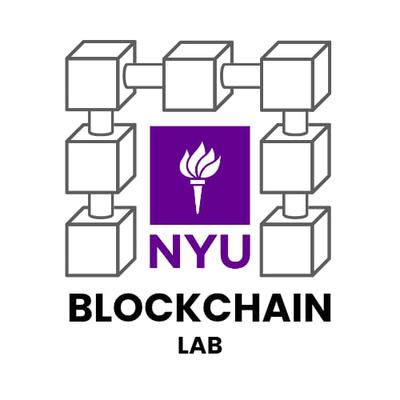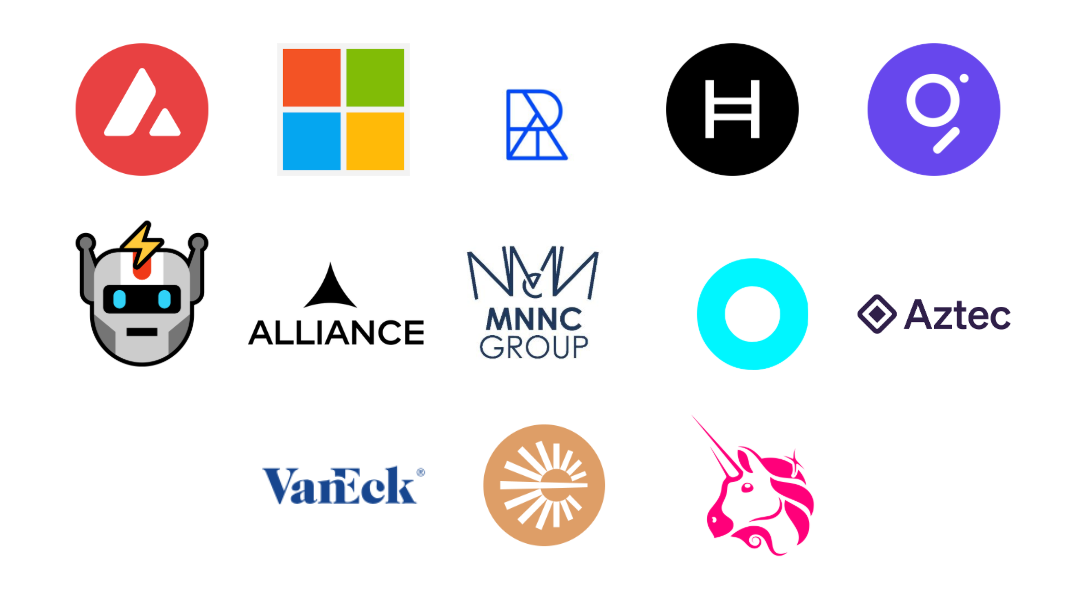Network Effects and Liquidity Provision in Stablecoin Markets
Gustavo Grivol
December 5, 2025
Randomness beacons from financial data in the presence of an active attacker
Daji Landis
November 21, 2025
Fragmented Price Formation: Price Manipulation, Cascading Executions, and Connections to Cryptocurrency Markets
Gustavo Grivol
November 14, 2025
Money for Fun or Fun for Money? How Blockchain-Based Financial Rewards Reshape Digital Hedonic Service Engagement
Eric Kwon
November 7, 2025
On the Impossibility of Transparent and Decentralized DeFi Trading
Hanna Halaburda
October 31, 2025
'Please Verify': How Human Behavior Undermines Blockchain Security
Taro Tsuchiya
October 24, 2025
The Economic Impact of DeFi Crime Events on Decentralized Autonomous Organizations (DAOs)
Stefan Kitzler
October 3, 2025
Overview of Digital Asset Treasury Companies
Gustavo Grivol
September 26, 2025
Empirical Analysis of the Stablecoin Environment and Recent Changes
Gustavo Grivol
September 19, 2025
Overview of Genius Act
Gustavo Grivol
September 12, 2025
A Primer on Oracle Economics
Luofeng Zhou
May 2, 2025
Smart Contract Commitment Attacks
Daji Landis
April 18, 2025
Blockchain vs. Fakes: The New Era of Anti-Counterfeiting
Christophe Gösken
April 11, 2025
Economic Censorship Games in Fraud Proofs
Akaki Mamageishvili
April 4, 2025
LLM Analysis on CBDC Adoption in China: Evidences from Social Media
Sylvia Xiaolin Xiao
Mar 21, 2025
In this talk Prof. Sylvia Xiaolin Xiao presented her work in progress using LLM to analyze texts of social media related to CBDC adoption.
Blockchain, Antiquities, and Novel Economic Models of Restitution
Amy Whitaker
Mar 14, 2025
In this talk Prof. Amy Whitaker discussed designing novel economic and contractual systems using blockchain to help with cases of restitution of art and culture
Agent-based modeling of Execution Tickets
Pascal Stichler
Mar 7, 2025
Execution Tickets are currently debated as one of the most promising approaches to streamline incentives at protocol level. We created a holistic overview of potential mechanism designs and implementing an agent-based model to realistically compare different mechanism designs and identify potential drawbacks early on. The agent-based modeling approach is presented together with the results.
Tokenization and Fantasy Sports Platform
Michael Zhao, Ilari Paasivirta
Feb 28, 2025
In this talk, Michael Zhao and Ilari Paasivirta presented their project on money tracking within Dream11, a fantasy sports platform
Bitcoin Staking, Overview of the Babylon Protocol
Gustavo Grivol
Feb 14, 2025
In this talk we discussed the main mechanisms behind the Babylon Protocol, functionalities and implications for the Bitcoin Ecossystem.
Liquid Staking Protocols
Dheeraj Maske
Jan 19, 2025
In this session, we discussed Liquid Staking Protocols and how these various designs aim to address the scaling problem of L1. We particularly focused on factors contributing to efficiency gains (such as reduced decentralization, transaction bundling, decreased congestion, and off-chain computation) and how these measures will impact transaction fees and the long-term stability of the platforms.
Relative Pricing and Efficient Allocation in Blockchains
Abdoulaye Ndiaye
Dec 6, 2024
In this meeting, Prof. Abdoulaye Ndiaye presented his paper "Relative Pricing and Efficient Allocation in Blockchains".
On the Viability of Open-Source Financial Rails, Economic Security of Permissionless Consensus
Jacob Leshno, Rafael Pass, Elaine Shi
Nov 22, 2024
In this meeting, Prof. Jacob Leshno presented his recent paper with Prof.Rafael Pass and Prof. Elaine Shi, "On the Viability of Open-Source Financial Rails, Economic Security of Permissionless Consensus".
Multi-block MEV
Gustavo Grivol
Nov 15, 2024
In this meeting we dicussed the implications of Maximal Extractable Value (MEV) over a sequence of blocks, how new strategies of MEV can arise under this scenario and how frequent this scenario can be.
Payment initiation and smart contracts
Alistair Milne, Ka Kei Chan
Nov 8, 2024
In this talk Alistair Milne (Loughborough University, UK) and Ka Kei Chan (Brunel University, UK) presented their draft paper, "Payment Initiation and Transaction Costs", exploring the choice in financial transactions between push initiation and pull initiation. The discussion also covered the role of pull initiation in the execution of smart contracts.
Recent Developments and Research on CBDCs
Hanna Halaburda, Jason Pearson
October 11, 2024
In this week session we discussed the development of Central Banks Digital Currencies, their usage, implementation and related topics. Two papers were used for our discussion.
Permissioned vs Permissionless Blockchains: Tradeoffs in Trust and Performance
Hanna Halaburda, Yannis Bakos
October 3, 2024
No description provided
Liquid Crypto Markets and Venture Investments
Ayesha Kiani
September 27, 2024
No description provided
Decentralized Identity and Decentralized Social Networks
Gustavo Grivol
September 20, 2024
This session we discussed recent advances in open-source protocols for decentralized identity and social networks, and their potential roles in response to cases where governments have banned social platforms.
Effects of Airdrops for user growth on blockchain platforms
Aviv Yaish, Benjamin Livshits
September 13, 2024
In this session, Aviv Yaish presented his recent work on how airdrops can incentive user growth for blockchain platforms and how different type of users can play a role in the effects of airdrop distributions.
Maximal Extractable Value at L2 Blockchains
Madhav Karwa
May 31, 2024
In this session we looked over recent analysis on Maximal Extractable Value over Layer 2 protocols
DeFi Transactions per network
Gustavo Grivol
May 3, 2024
In this session, we explored how each the DeFi enviroment for each blockchain would differentiate from each other in terms of transactions characteristics and how this differences were evolving.
I See You! Robust Measurement of Adversarial Behavior
Lars Ankile, Matheus Venturyne Xavier Ferreira, David Parkes
April 12, 2024
The paper introduces a novel surveillance metric to measure manipulative behavior in multi-agent systems, specifically focusing on decentralized finance (DeFi) and blockchain systems, and demonstrates its effectiveness through a natural experiment conducted on the Uniswap DeFi ecosystem. This paper is presented by Matheus
Dynamic Pricing for Non-fungible Resources - Designing Multidimensional Blockchain Fee Markets
Theo Diamandis, Alex Evans, Tarun Chitra, Guillermo Angeris
April 5, 2024
The research proposes a method for designing fee markets in public blockchains that efficiently price multiple non-fungible resources. It utilizes a dynamic pricing mechanism based on a network designer-specified loss function, aligning incentives between the network, users, and miners to enhance overall performance.
Some interesting findings about L2 Protocols and Stablecoins
Madhav Karwa
March 29, 2024
The discussion covers Ethereum's recent scalability upgrade facilitating L2 solutions integration and examines empirical methods to identify reasons for failures in stablecoins.
Evidence on the influence of stablecoin depegs on the price dynamics of non-stable crypto-assets
Baptiste Perez
March 8, 2024
No description provided
Optimal Block Times under Decentralized Exchange Arbitrage
Josh Reed, Gustavo Grivol
February 16, 2024
No description provided
L2 paper discussion
Baptiste Perez
February 9, 2024
No description provided
Security of L2 platforms
February 2, 2024
In this session, we discussed how and to what extent L2 blockchains inherit security guarantees from L1 blockchains and what new security risks arise with L2 technology.
Business models of L2 platforms
Not specified
January 26, 2024
On most L2 platforms, the transaction fees users pay consist of a fee for the verification of their transaction on the L2 network and a fee to publish its proof on the L1 network. Since the L1 fees depend on congestion at the time the proof of an L2 transaction bundle is published on the L1, L2 platforms can generate profits if the fees they charge surpass their operational costs and the L1 fees they pay. In this session, we discussed under what circumstances an L2 platform can establish a viable business model.
Architecture of L2 platforms
Not specified
January 19, 2024
In this session, we discussed different L2 architectures and how these various designs aim to address the scaling problem of L1. We particularly focused on factors contributing to efficiency gains (such as reduced decentralization, transaction bundling, decreased congestion, and off-chain computation) and how these measures will impact transaction fees and the long-term stability of the platforms.
Blockchain Price vs.Quantity Controls
Abdoulaye Ndiaye
December 15, 2023
This paper proposes a new transaction fee mechanism for blockchain platforms like Ethereum. This paper is presented by Prof. Abdoulaye Ndiaye (NYU)
Informational Efficiency of Cryptocurrency Markets
Mahendrarajah Nimalendran, Praveen Pathak, Mariia Petryk, Liangfei Qiu
November 3, 2023
This paper investiagtes the impact of regulatory compliance on the liquidity of cryptocurrencies. This paper is presented by Prof. Mariia Petryk (GMU)
Decentralized Platform Generativity
Aija Leiponen, Llewellyn D W Thomas
June 15, 2023
This paper delves into the underexplored realm of decentralized platforms, such as blockchains, contrasting them with centralized counterparts in terms of their impact on innovation dynamics. It uncovers how transaction validators and platform design intricacies shape generativity and network effects, enriching our comprehension of developer engagement and network dynamics in decentralized environments. This paper is presented by Prof. Aija Leiponen (Cornell)
See more talks from NYU Blockchain Lab





